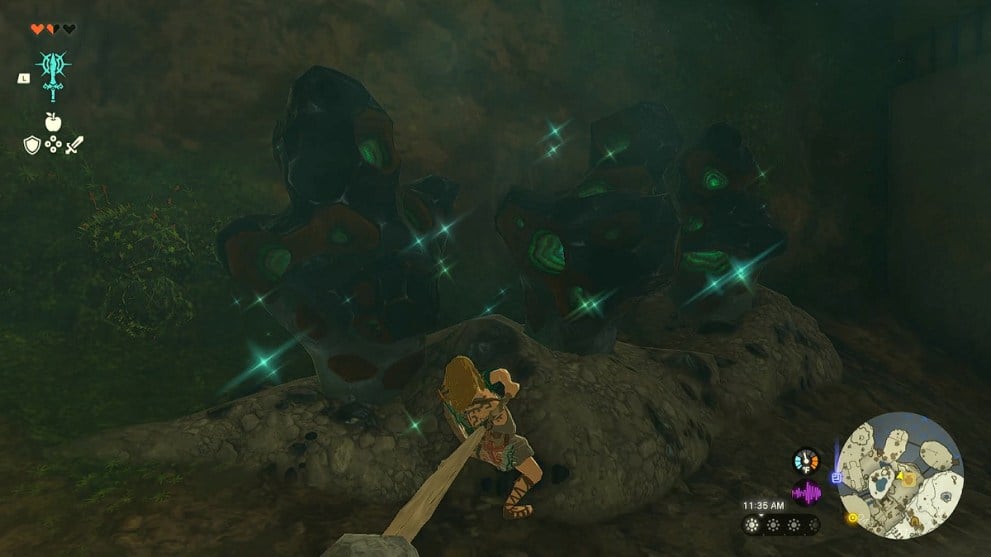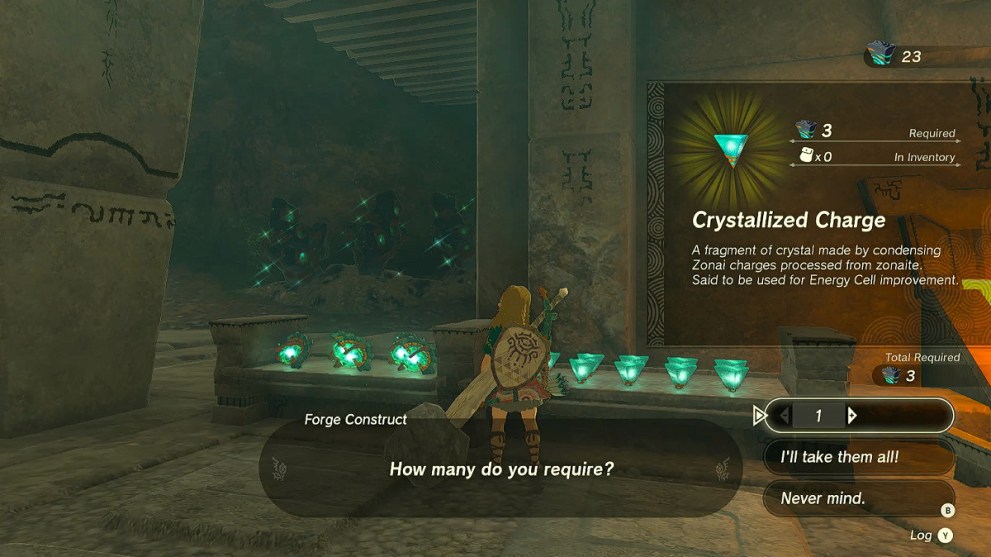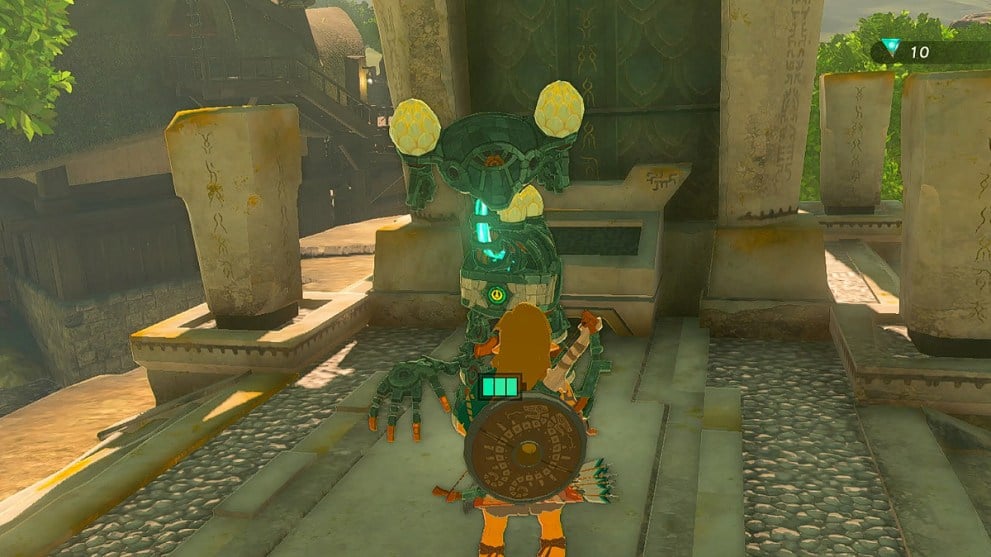Besides adding new powers, The Legend of Zelda: Tears of the Kingdom introduces mysterious Zonai devices that you can use during your journey in Hyrule. However, you cannot utilize them indefinitely and must use Zonai Power to activate these machines. You will only get a limited amount in the beginning, but here’s how you can get more Zonai Energy Cells and increase your Zonai Power in Tears of the Kingdom.
Obtaining More Zonai Energy Cells & Increasing Zonai Power in Tears of the Kingdom
The process of getting more Zonai Energy Cells in Tears of the Kingdom can be rather convoluted. Here are the steps you must go through to increase your Zonai Power capacity:
- Gather Zonaite ores
- Purchase Crystalized Charge
- Exchange Crystalized Charge for Zonai Energy Cells
First of all, you need to farm Zonaite ores by breaking glittering black rocks. You will first encounter Zonaite rocks when entering a dark tunnel in the Great Sky Island.
Using a rock hammer, which you can get by fusing a weapon and a rock, you can smash these stones to bits with one strike. Breaking the Zonaite rocks with other weapons is not recommended since it can quickly reduce their durabilities.

Once you have many Zonaite ores, you can head over to the Forge to purchase some Crystalized Charges. You will encounter this location in the same dark tunnel where you can find the first Zonaite rocks. You can get one Crystalized Charge for a price of three Zonaite ores.

The next step is to visit a Crystal Refinery. You will discover the first one when visiting the last shrine on the Great Sky Island, but you can also find another refinery near Purah’s base.

To get one Zonai Energy Cell and increase your Zonai Power capacity, you must spend 100 Crystalized Charge. That means you need to farm 300 Zonaite ores to receive one upgrade.
That is everything you need to know about Zonai Energy Cells and how to increase your Zonai Power in The Legend of Zelda: Tears of the Kingdom. Twinfinite has more Zelda content below, so be sure to check them out before leaving.
